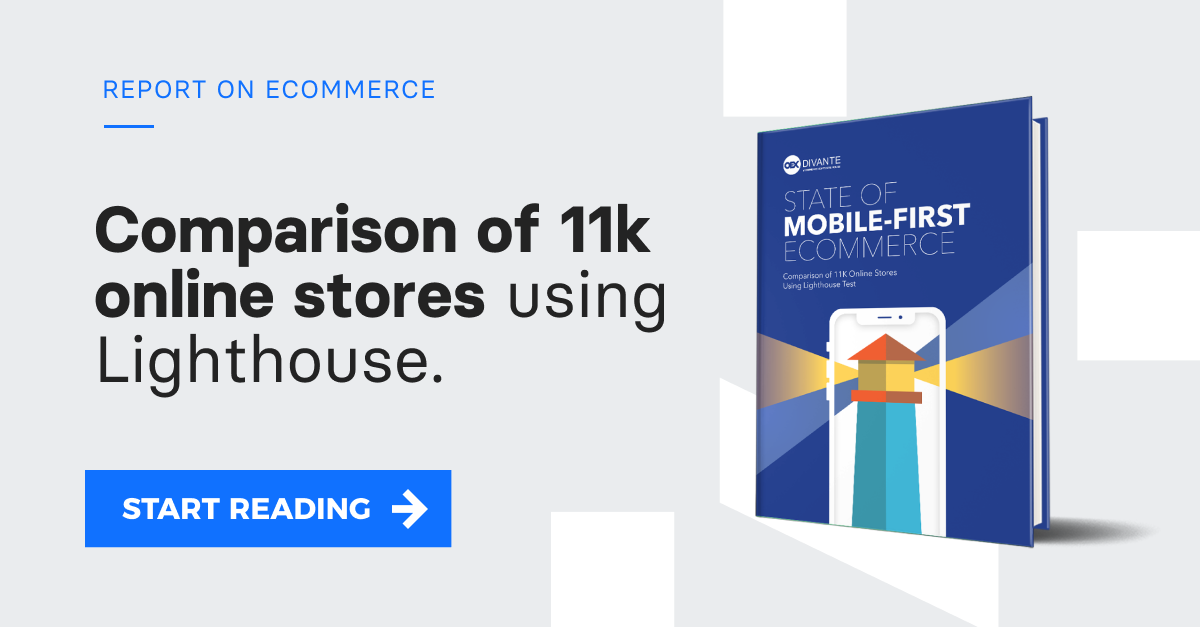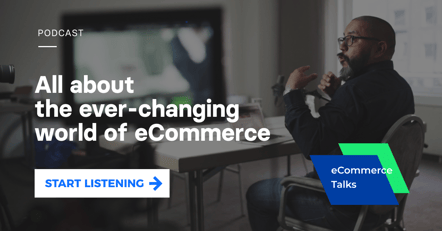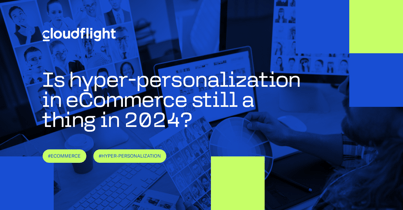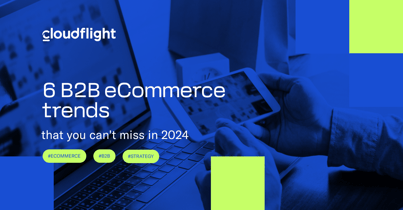With our guest, Thomas Leskowsky, we discuss modernizing and growing eCommerce in smaller European countries, which are a few years behind the global leaders. Along with our host, Marcos Bravo C., we try to understand the reasons behind the slower development of eCommerce in some ecosystems and think about ways to speed it up.
Thomas Leskowsky is Head of Community Management at A-Commerce, a company specializing in strategic consultancy and strengthening the eCommerce community in Austria.
How does the eCommerce ecosystem look in Austria? What happens on a market built from old, family brands like Swarovski? How can these companies can catch up with global leaders and react to changes like GDPR or cloud services? How do they deal with multichannel behaviors of customers? What are the challenges for young companies in Europe? How can they find their unique spot on the market? Does Austria have enough developers and eCommerce experts? How can they gain these, or any other, competencies which they may lack?
We present answers to these, and many more questions, in this episode of eCommerce Talks.
eCommerce Talks – video:
eCommerce Talks – podcast:
eCommerce Talks – transcription:
Marcos Bravo C.: Welcome one more time guys in the eCommerce Talks. We have a special guest today – Thomas Leskowsky from Austria. What is your role right now – well you’re working with A-Commerce, right?
Thomas Leskowsky: Yes, of course, I do.
– If you can tell us a little bit more about that before we start talking about the trends and what’s going on in Austria, and the market in general in the DACH region.
– Okay, alright. A-Commerce is, like, the eCommerce network or community in Austria, so we are hosting, like, the K5 conference in Austria, it’s more or less a small event with, like, 700 people just from the eCommerce society in Austria. We host it in Vienna, mainly, but we’ve got 14 other events in Austria that we are hosting throughout the year. And on the other hand, we are a strategic eCommerce consultant, which means we are helping companies starting from the bottom, more or less. And on the other side, if they are already established brands or established online shops already, we help them to grow better and faster than it did before.
– All right. How is the eCommerce ecosystem looking in Austria? We talked a little bit before and you were saying that it looks like it’s a bit behind, so you guys are trying to make them catch up with what’s happening, with the rest of the world. So how is it? Tell us a little bit more about the ecosystem in Austria and how are the companies coping with it.
– Yes. It’s very funny if we compare it with the whole DACH region, everybody thinks it’s all the same and in the, in the end, are, like, three or four years behind Germany, which also means that the technical improvement takes some time. And also, we see it in the companies itself – they need to get the culture right, to get the digitalization in general forward. That means we have to help them to get on the right track, to keep up with the whole DACH region itself. So in Austria, we got many merchants, many manufacturers, but I think the potential is still there and we are just starting right now.
– What are the areas that they’re more advanced? I mean what are they? For example fashion, is it videogames or… and what are the companies that they already got there?
– Yeah, it’s more or less hidden champions, like we used to say. I don’t think we have, like, the big fashion brands, but we got, like, Swarovski and big family companies in Austria from ZGONC, or Hartlauer, Swarovski, all the names that you hear in Austria, where you don’t really know what’s behind it and where’s the history starting, and where does it go already. And we also got very much industry in Austria, it’s, like, in the upper part of Austria where we’ve got a very tight section where all the company sits and they just wait to get started in the whole eCommerce sector and we’re just crashing in.
– And now what are you guys bringing your knowledge from? I mean, obviously, companies there, like Swarovski or things like that, companies that they’re being around for a while, so… actually let me rephrase the question. What are they mostly lacking, what are they looking for, where do they need help?
– First of all, they need to note that nowadays their customers want a different customer experience, for example. Ten years ago we started, like, with the desktop things and “Oh it’s awesome to buy some things online” and now we have to see that the customer… is, like, a multi-channel guy or girl , in the end, so we’re starting to search online, then we go to the shop and we purchase it online and we’re kind of used to that. But if the company itself doesn’t offer that to the customer, the customer thinks, like, “Okay, what’s going on here? Did the company stop or how will it go into the future?”. And there we have to set the point that we have to get into the culture itself and also have to tell them that they need to have, like, the mobile-first addiction, our customers like, I think you will agree with that, we are all having our smartphones in our pocket and we can shop wherever we want, however we want, and on which mobile phone or end devices we want.
– Now you mentioned that you work with smaller companies, newer companies and also traditional companies, that they’re already settled let’s say. What are the main challenge for the new companies, because I’m thinking the bigger companies, they have a budget to get everything fixed if needed, but for the younger companies that are trying to break in not only in the Austrian market, but eventually Europe and maybe the world. What are the challenges for them?
– They first have to know that they have to have a strategy, especially when they are studying into the eCommerce business. Most of the people or the company start, like, “Okay let’s sell something online” and they try it, I like the spirit of just make some mistakes or failures – you can learn from that, it’s the lessons learned. We already all have heard about, but in the end, if you have too many mistakes and you don’t learn from it, you will have no money in the end and, in the end, you will be disappointed that nothing happens as you want it like. So, therefore, they really have to see where is their specific point in the market, where they have to crash through and, on the other hand, that they have the right technical infrastructure on the other hand, that they can raise this eCommerce shop, for example, in the right direction.
– So when you talk about A-Commerce, your company, you guys are covering most of these steps, right? So you could grab one of the clients hand all the way till the end of the process. And technically-wise, because we know that there is a… How can I put it? There’s not enough people to cover all the needs from the eCommerce world. I mean companies are having to outsource a lot or they’re having a hard time trying to find the right people. How is Austria coping with this? I mean do you guys have enough developers or do you have to outsource some of your stuff outside and how’s it working?
– I think in the whole DACH region we won’t have any developers at all. So it’s like a neverending story, there is too much needed and too less that’s already offered on the market. So the company’s tried to catch from the other side more or less and have to find other ways to get to the developers. That’s also the thing in the companies itself; they are looking for outsourced developers, that they can find wherever they want to and try to integrate them into their own company and it’s more like the developer doesn’t mind if they have to… if they work from somewhere else in the end…
– …exactly the remote culture nowadays is…
– …yeah, in the end, the end product more or less should fit in the end.
– All right and if we look for example at the cases that you guys been dealing with. What was one of the cases you’re most proud? Or not maybe just from your company, but in general from Austria, like, one of the companies that adapted well or fast enough to go at least Europe wide.
– Okay, there would be many references more or less in the end, but we have, like, one of the biggest companies in Austria, for example Lagerhaus, and they have… in Austria we say “Genossenschaften” [eng.: cooperative], I don’t know the English word already, but it’s like every…
– I’m sure someone will find it at home and let us know what it is.
– And they started that right time to get on the eCommerce track already because there are, like, many systems that have to be integrated and was a long, long journey to get where they are now and everybody sees that this is not the end. If you are focusing to 2019, for example, to launch the online shop everybody thinks of “OK, and then check it’s done” no it’s not. ECommerce is like a never-ending journey in the end, so you still have to see what’s on the market, which new technologies will host at the market and you have to be on track and that’s also our part to get the companies to know other companies, which provide them with technologies, and so on.

– We’ve been doing a lot of Europe lately and one of the main things that people bring up is GDPR, right? GDPR was something that came up not so long ago and companies are still trying to adapt to that. Into the whole GDPR one of the main things that we’ve been there also discussing is having a monolithic system versus, like, microservices, so moving from your own server to different companies offering you all the solutions. How is it in the market in Austria? Do you see companies trusting moving into the cloud, moving into microservices or are they still very, like, I’m not sure if I should put my stuff somewhere else?
– 50/50. I think there’s no winner right now. And we will see in the next five to ten years, where the journey will go. But I think nowadays the shift goes into the cloud, because we’ve got, like, shows where they can pitch their products for example and they see “OK, I get as many customers I never calculated with” and now they see “OK, if I have, like, for example, like, cloud servers, I can have as many customers as I want on that, without closing my online shop for one hour or something”, it’s like wasting money in aggregate.
– And are companies understanding the investment? Going again to the example of big and small companies. Are big companies aware of the transformation and the costs – and I don’t mean just money-wise but the cost of time and investment? Are they willing to do that or some of them are trying to step back and say “Now we’re fine. We will deal with that later”?
– Again 50/50, yeah. You have to take them by the hand to say, “OK if you have, like, requirements to fulfill and you want something, and you also have to be aware of that, this will cost some time, money, whatever in the end.” And we have to take them by the hand and say, “Okay if you want to have those requirements already fulfilled you have to invest now, because if you don’t do it, you will get behind new commerces for example”, which we’ll see what’s the chances behind those new technologies for example like PIM systems. You see, they have to do it, it’s not if they do it, just when. It’s just a question of when will they do it to keep on track.
– And from all the biggest challenge, I mean we know that Europe is not as powerful, money-wise or market-wise like the US, right? The US is a massive market and here we’re still talking about how smaller countries are moving at different speeds, like you said, Austria is a bit behind Germany and maybe Switzerland, it’s not even… maybe they don’t even care, I don’t know.
– I can’t tell, yeah.
– But I’m regarding these speeds. How do you see the future of this? How are the countries in Europe in general trying to level up the way they sell, the way they relate to the customer, the way they actually face with eCommerce?
– Okay that’s a very good question, could you’ve got a little bit deeper inside that.
– Yeah, I mean basically I would love to know, like, how the different countries or how do you see the future of the different countries leveling up their eCommerce efforts or the eCommerce knowledge, even the education of how much they know about about the challenges to come?
– I think that’s also one of our missions in the end, to get out to the companies, it’s also one of my main points in our company to get to face the customers itself, to tell them what’s new on the market and I think we are also, as a news platform, it’s our mission to tell them “Okay, please Austria, try to get to know new technologies that you have to get back on track with all the countries around us” and therefore I can’t tell how we are, for example, compared with the US. I think there are still different roles between us, not just kilometers. And in the end we will see where the journey will go on, we will do our best to keep pushing forward everything around the technologies.
– I’m gonna ask you want one question that we ask all of our guests. If you have to recommend a good book or a good podcast for people, that they’re planning to go global or they’re planning to move heavily into eCommerce, what would you recommend?
– Okay there are very many. Let’s see which one would I recommend… I’m also writing on my own book, it’s also a point where we would suggest to read that just comparing everything that we already learned from our references. And now I can tell I think everything coming from the Amazon site shows best how you will get back to the status quo now, because Amazon also started with the bookstore and it’s now, like, hosting a marketplace and we see that companies…
– …they’re all the world…
– …yeah they’re all the world already. And we can see that on other companies they just want to start a marketplace and we say “Hey keep it slowly, start with your online shop and then go back to the marketplace” I can’t tell which book is already exactly hitting this spot…
– But that’s the area, that they should be looking at.
– Therefore, you should look into that.
– Cool! Thomas thank you so much for joining us today and I love talking about trends, especially in Europe and it’s great to see that Austria is… I’m sure it’s gonna be a little bit faster thanks to you guys.
– Thank you for it.
– And thank you guys for watching it one more time, we’ll see you next time.

Published September 9, 2019











